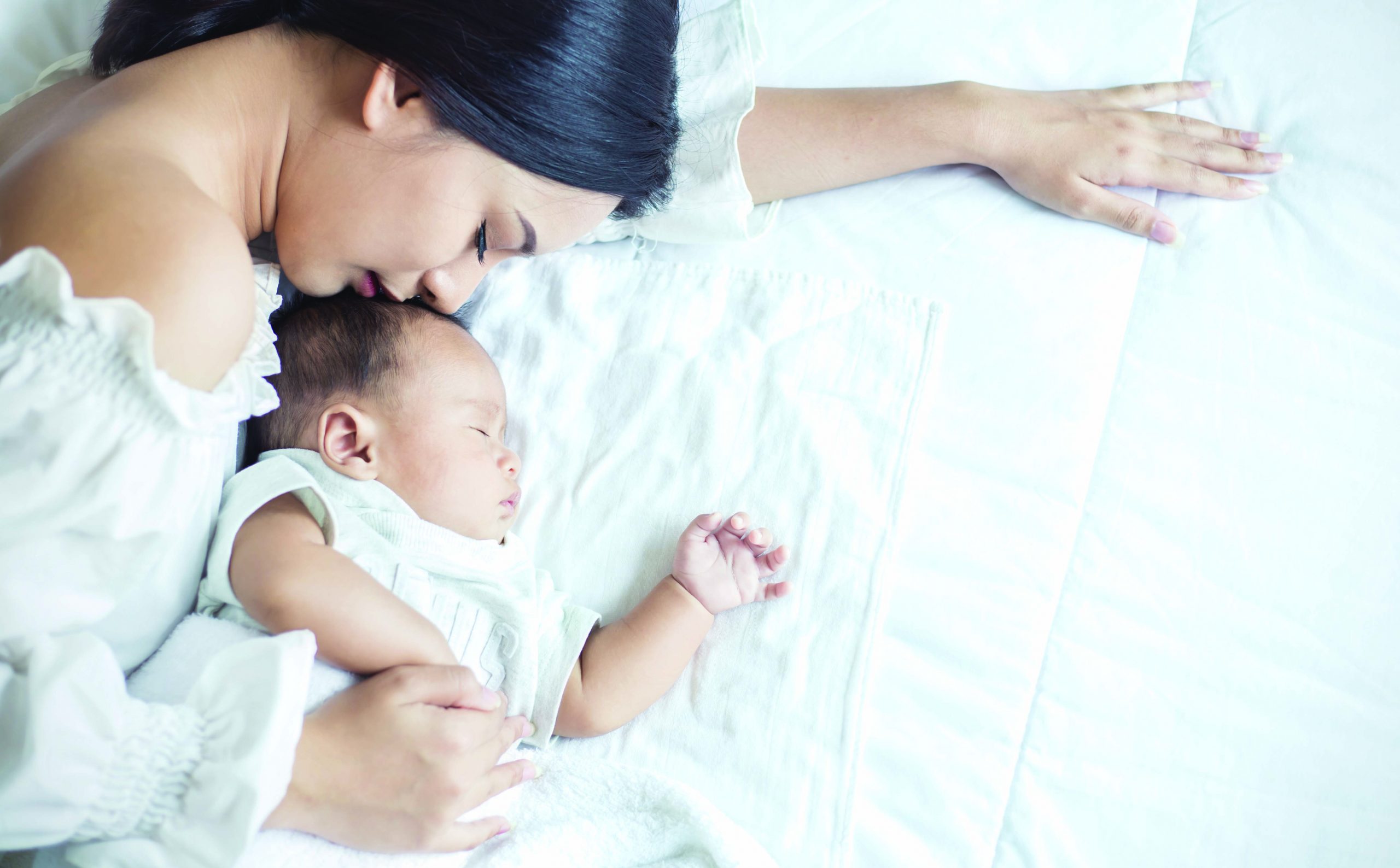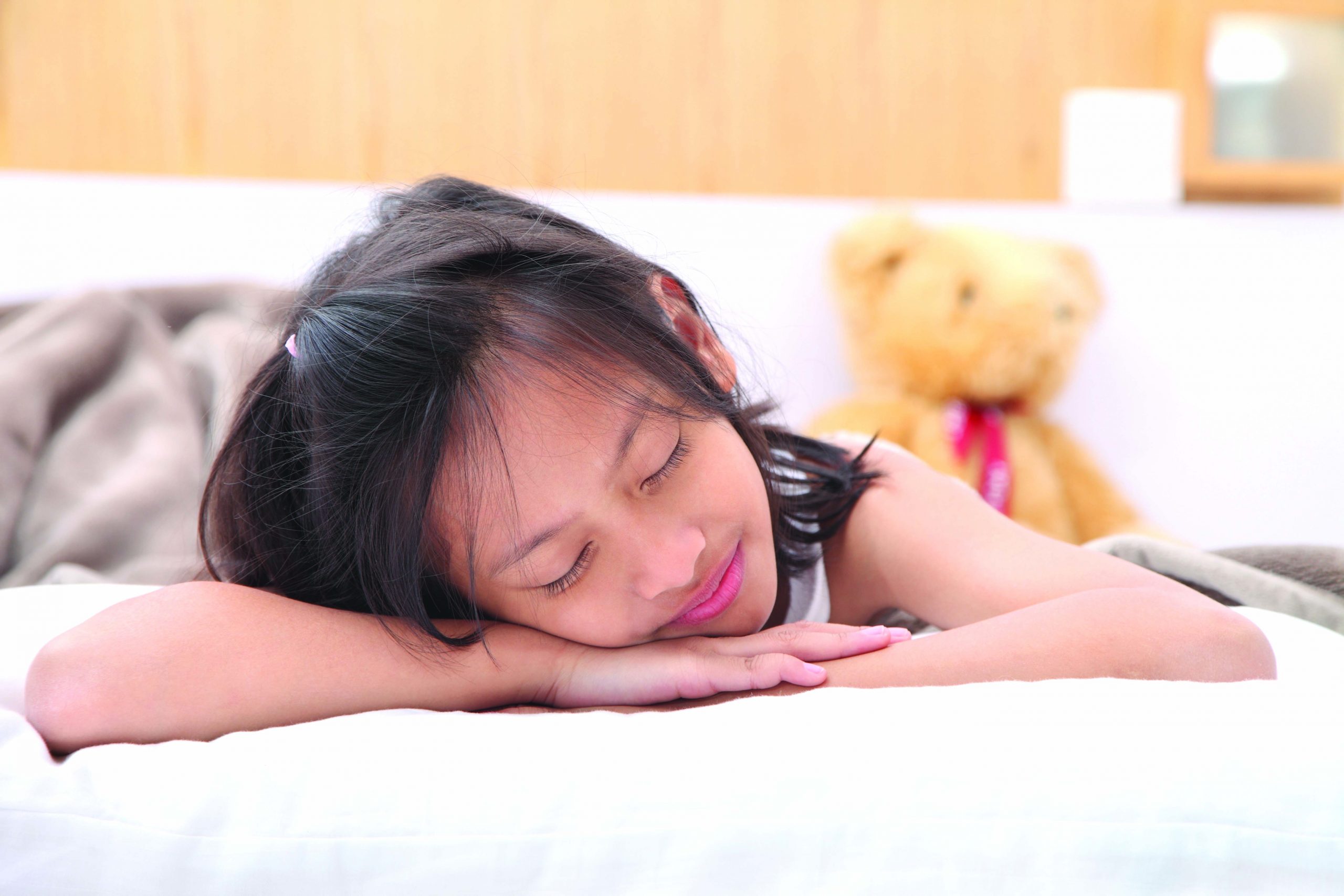Modern day parents are confused about the advisability of co-sleeping with parenting counselors and experts divided on the issue
Aruna Raghuram
 “For most of human history, parents slept close to their babies for their safety and protection, as well as for parents’ own ease of breastfeeding and sleeping.” — Dr. James J. McKenna, anthropologist and author of Safe Infant Sleep: Expert Answers to Your Cosleeping Questions.
“For most of human history, parents slept close to their babies for their safety and protection, as well as for parents’ own ease of breastfeeding and sleeping.” — Dr. James J. McKenna, anthropologist and author of Safe Infant Sleep: Expert Answers to Your Cosleeping Questions.
Though as Dr. McKenna says for centuries parents have instinctively observed co-sleeping — the practice of parents and young children sleeping in the same bed — the debate over whether it’s good or bad for children is not over. Not a few latter day parents are confused about the advisability of co-sleeping with parenting counsellors and experts divided on the issue. In Western countries, co-sleeping is not normative and most children sleep in separate rooms from infancy. However in India, it’s socially accepted for children to co-sleep with parents until they are six or seven years old. Moreover with the Indian home averaging only 494 sq. ft, space constraints also force most parents to sleep with their children.
Sids risk
The American Academy of Pediatrics (AAP) strongly advises against bed-sharing between parents and infants, until one year of age, as it increases the risk of SIDS (sudden infant death syndrome). During co-sleeping, it’s possible that a parent could roll over and suffocate the baby or loose blankets and sheets can cause suffocation. However, AAP suggests room-sharing until an infant is at least six months of age (preferably one year) to enable parents to keep a close watch on her.
 Bengaluru-based pediatrician, Dr. N.V.S. Krishnan, says in India too ‘rooming-in’ of mother and infant is encouraged. “Rooming-in is a practice that is recommended by government, obstetricians and pediatricians. Immediately after delivery, the infant is put in a crib in the same room as the mother. Earlier, the infant would be kept in a nursery in the hospital and brought to the mother for breastfeeding. Rooming-in fosters bonding between mother and child and promotes breastfeeding,” says Dr. Krishnan.
Bengaluru-based pediatrician, Dr. N.V.S. Krishnan, says in India too ‘rooming-in’ of mother and infant is encouraged. “Rooming-in is a practice that is recommended by government, obstetricians and pediatricians. Immediately after delivery, the infant is put in a crib in the same room as the mother. Earlier, the infant would be kept in a nursery in the hospital and brought to the mother for breastfeeding. Rooming-in fosters bonding between mother and child and promotes breastfeeding,” says Dr. Krishnan.
According to Krishnan, co-sleeping becomes a necessity in some Indian households because of space constraints. “In many Indian homes, there is a shortage of space, especially in the case of underprivileged families. In the West this is not the case. In my opinion there is no concrete evidence of either benefits or disadvantages of co-sleeping.”

Dr. Preethi Anne Ninan
Dr. Preethi Anne Ninan, clinical psychologist and consultant at Bangalore Baptist Hospital, believes that “whether parents choose to bed-share, room-share or create a separate bedroom, their first priority should be safety of the child while sleeping”. “Child safety is the most important consideration while deciding where infants should sleep. Parents should always make sure to sleep infants on their back on a firm mattress, free of heavy blankets, pillows or soft toys,” advises Dr. Ninan.
Arguments in favour
Parents and infants co-sleeping in the same room — not bed — has many advantages. They include:
Convenience. Having an infant crib in your bedroom is very convenient. “It is easier for parents to soothe, breastfeed and change diapers at any time during the night. Parents can also immediately respond to any changes in the child’s breathing or heart rate. And most importantly co-sleeping encourages mothers to breastfeed for longer durations,” says Ninan.
Bonding. Co-sleeping promotes bonding and attachment between parent and child. It allows parents to cuddle and hug children and bond with them.
Practical option. In a joint family where families across generations live together, co-sleeping is the most practical and feasible option. For instance, older children may be occupying the second bedroom. Therefore infants should sleep with parents.
Less anxiety. Youngest children feel safer, less anxious and more loved when they sleep near their parents.

Riddhi Doshi Patel
Comments Riddhi Doshi Patel, child psychologist, parenting counsellor and founder-director of Rhyns Academy, Mumbai: “I believe Indian children are confident, adaptive and accepting of others because of the security that co-sleeping gives them. They also don’t experience as much separation anxiety as solitary sleepers when they begin school. Co-sleeping allows parents to indulge in greater physical displays of affection.”
Patel recommends that parents design their infant’s crib into an extended version of their bed with the rail lowered to make “the baby feel secure yet giving her own safe space”. “When a child is older you can put another cot in the room. If a child gets used to sleeping on the same bed as her parents, the transition to moving to her own room may become very difficult,” she explains.
Arguments against
There are disadvantages of co-sleeping.
Sleep deprivation. Infants tend to wake up multiple times in the night. This will disrupt sleep of parents, prompting day-long fatigue. “The sleep clock is not the same for child and parents. Parents co-sleeping with child can’t keep the light on in their bedroom and have to be quiet to avoid waking her up,” says Patel.
A recent study published in the journal Behavioral Sleep Medicine found that “co-sleepers have a significantly later bedtime, shorter night-time sleep duration, higher bedtime resistance and sleep anxiety scores, and more behavioural and emotional problems compared to other groups. Parents of co-sleepers have a significantly higher level of psychological and couple distress.”
Couple intimacy affected. Parents will hesitate to be intimate with each other emotionally or physically. Also, children may be exposed to adult issues that their parents are discussing at bedtime. Some parents may also be troubled about being judged by peers if they co-sleep with older children.
Child becomes dependent. Co-sleeping tends to create anxiety and dependence in children. They may be unable to sleep when their parents are not around. This habit could also discourage them from going to sleepovers with friends or on school excursions.
Ending co-sleeping

How can a parent wean a child of the habit of co-sleeping? Comments Dr. Preethi Anne Ninan: “I suggest that parents make this a slow and gradual process. First, create a separate cosy sleeping space for the child in the parents’ room. Then gradually move her things to her room while daily discussing advantages of a child having her own room. Create a steady bedtime ritual for her to bring in a sense of predictability and stability. Like every other aspect of parenting, consistency is key.”
Adds Riddhi Doshi Patel: “A three or four-year-old can be gently transitioned into her own room. Involve her in decorating and move her cot to give her a sense of continuity and security.”
Experts advice parents against forcing children to sleep in a separate room and to ensure that they are always available to comfort them. The transition to sleeping alone may take weeks or even months. Parents need to be patient.
Als0 read: Coping with sleep deprivation























